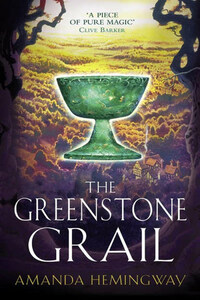Ah, once I lived my life in every breath,
I gave my first love to a unicorn
and rode the shadows on the edge of death
and pierced my heart with his enchanted horn.
I saw the mountains soar ice-white, cloud-tall,
and moonfoam on an endless waterfall,
and felt the petals of my flesh unfold,
and mountains, waterfalls and heartbeats rolled
down long blue valleys to a distant sea.
Oh Lord, even the pain was dear to me,
if Lord there be.
And now my life is filled with little things,
little moments crowding little days,
my thought has shackles where it once had wings
and narrow vistas overstretch my gaze,
and daily work, and daily growing care
trundle me down the road to God-knows-where
if God is there.
I fear the hour when the world turns grey
and in the hollow midnight try to pray;
mountains and waterfalls have flowed away
leaving leaving me nothing much to say,
nothing but questions, till my thought runs dry—
I ask and ask, but never hear reply:
Is there a dream to set my spirit free?
In all the dead void of eternity
is there a God—and Love—and Phantasy—
or only me?
Is there Another, Lord, or can there be
no God but me?
The name of the island was Æeea, which, however you attempt to pronounce it, sounds like a scream. It was a gold-green jigsaw fragment of land a long way from any other shore, laced with foam and compassed with the blue-shaded contours of the sea. Near at hand, the gold dulled to yellow: slivers of yellow sand along the coastline, dust-yellow roads, yellow earth and rock showing through the olive groves on the steep climb to the sky. The central crag was tall enough to hook the clouds; in ancient times the natives believed such cloud concealed the more questionable activities of their gods. Nowadays, the former fishermen and peasant-farmers catered to the discerning tourist, telling stories of smugglers and shipwrecks, of mermaids and heroes, and of the famous enchantress who had once lived there in exile, snaring foolish travellers in the silken webs of her hair. Æeea was overlooked by the main holiday companies: only the specialists sent their customers to a location with little night-life and no plate-smashing in the quiet tavernas. Most of the more sumptuous villas were owned by wealthy mainlanders who wanted a bolthole far from the madding crowd of more commercial destinations.
The villa above Hekati Beach was one of these. More modern than most, it had seaward walls of tinted glass, black marble pillars, cubist furniture standing tip-toe on blood-coloured Persian carpets. There was a courtyard, completely enclosed, where orchids jostled for breathing-space in the jungle air and the cold silver notes of falling water made the only music. At its heart the latest incumbent had planted a budding tree, grown from a cutting, a thrusting, eager sapling, whiplash-slender, already putting forth leaves shaped like those of an oak but larger, and veined with a sap that was red. The house was reputedly the property of a shipping owner, a billionaire so reclusive that no one knew his name or had ever seen his face, but he would loan or rent it to friends, colleagues, strangers, unsociable lessees who wanted to bathe on a private beach far from the prying eyes of native peasant or straying tourist. The latest tenant had been there since the spring, cared for by an ancient crone who seemed to the local tradespeople to be wilfully deaf and all but dumb, selecting her purchases with grunts and hearing neither greeting nor question. Her back was hunched and between many wrinkles the slits of her eyes appeared to have no whites, only the beady black gleam of iris and pupil. The few who had glimpsed her mistress declared she was as young as her servant was old, and as beautiful as the hag was ugly, yet she too was aloof even by the standards of the house. They said she did not lie in the sun, fearing perhaps to blemish the pallor of her perfect skin, but swam in the waters of the cove by moonlight, naked but for the dark veil of her hair. In the neighbouring village the men speculated, talking in whispers over the last metaxa of a goddess beyond compare, but the women said she must be disfigured or diseased. She had a pet even stranger than her servant, a huge sphinx-cat hairless as a baby, its skin piebald, greyish-white marked with bruise-black patches. It had been seen hunting on the mountain-slopes above her garden; someone claimed to have watched it kill a snake.
Behind the glass walls of her house, the woman heard the villagers’ stories though her servant never spoke, and smiled to herself, a sweet, secret smile. She still bathed by night, secure in the power of the moon, and by day she stayed in a darkened room, lighting a cold fire on the cold marble hearth, and gazing, gazing into the smoke. Sometimes she sat in the courtyard, where little sun found its way through the vine-trellised canopy. No cicadas strummed here, though the slopes beyond throbbed with their gypsy sawing; no bee buzzed, or not for long. The hungry orchids sucked up all insect-life in their spotted mouths. There was no sound but the water. The woman would sit among the carnivorous plants, dressed in a thin red garment spotted like an orchid, with the black ripples of her hair falling around her shoulders. Watching the tree. The cat came to her there, and rubbed its bald flank against her limbs, purring. Will it fruit, Nehemet? she would murmur. It grows, but will it fruit? And if it does, what fruit will it bear? And she would touch the leaves with her pale fingertips—leaves which trembled at that contact, not after but before, as though in anticipation.













